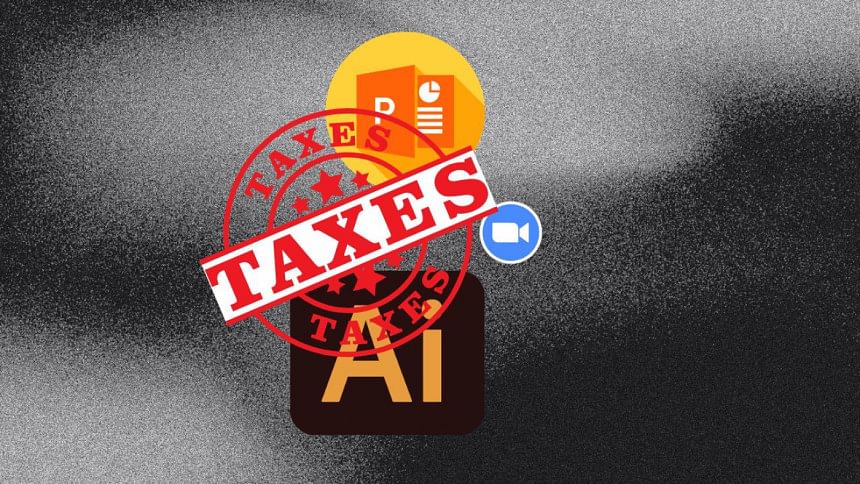Why VAT on imported software does not make any sense

In the latest budget proposal for the fiscal year 2023-24, Finance Minister AHM Mustafa Kamal proposed an increase in the import duty on imported software, from 5% to 25%. Additionally, the proposal includes a 15% VAT on the import of foreign-made software, while such a VAT was nonexistent in previous fiscal years.
Officially, the 'software' mentioned in this particular part of the proposal includes the following: database, operating system, development tools, security software (used only for data or information protection), word processing, spreadsheet, internet collaboration and presentation tools.
While there isn't a definitive list of all the individual software that are included under this umbrella, some obvious inclusions are Windows operating systems, antiviruses such as Kaspersky and Avast, online workplace tools such as Zoom and Google Meet and of course, the ever-popular Microsoft Office apps such as Word, Excel and PowerPoint.
It goes without saying that this whopping 20% increase in import duty for software is a massive one. Not only does it mean an increased price tag for essential software like Word and Windows OS, but it reduces the accessibility of premium, full versions of such software for local users. This ends up affecting large organisations and local workplaces that are dependent on data management and word processing tools, as they have no other option but to pay extra to install these absolutely necessary tools to keep their work going.
The intention of this VAT increase, despite the apparent consequences, is clear. In his proposal speech, the finance minister stated that this increase stems from the government wanting to protect the domestic software industry and "to prevent false declaration and duty evasion". Imposing a rule to avoid tax evasion of course makes sense, but the other part of the reasoning, i.e. "protecting the domestic software industry", can have unintended double-edged effects.
While it may be true that the VAT has been imposed to incentivise local production of such software, the fact remains that Bangladeshi tech companies are not yet at the stage to produce software to the level of Microsoft Word or Kaspersky Antivirus - software that are downloaded and used in nearly all computers in the world. As a result, even the local companies attempting to improve the domestic software industry will have to buy these programs at an increased price, which, undoubtedly, causes notable harm over any intended good.
This VAT increase and subsequent price increase also means many local users, instead of legally buying the software, will be more likely to resort to illegal methods. A modern internet user is perfectly capable of using torrent sites to get cracked versions of premium software. While it goes without saying that such methods are unethical, the ease of using the latest version of a popular software without spending a dime is something many people would resort to, granted they had the option to do so.
Besides, a main reason why many opt to resort to pirating such important software is because in Bangladesh, premium software are already hard to come by and even when available, are generally expensive. Now, with added VAT that will hike the prices further, piracy of these products are more likely to be on the rise.
This, in turn, not only hurts the global tech industry but the local one as well, as local companies are unable to release software that local users would want to use. Ultimately, not only are sales being affected but overall development and growth too - something that the budget proposal was expressly trying to avoid.
Perhaps, in a perfect world, local tech companies will be able to come up with user-friendly, everyday-use software that will resonate with local users for both professional and casual purposes. We don't need a Bangladeshi Microsoft Word - anything remotely close would do. Until then, Bangladeshi users will either have to unfortunately depend on illegally obtaining these important digital tools or, simply, just pay up extra.

 For all latest news, follow The Daily Star's Google News channel.
For all latest news, follow The Daily Star's Google News channel. 







Comments